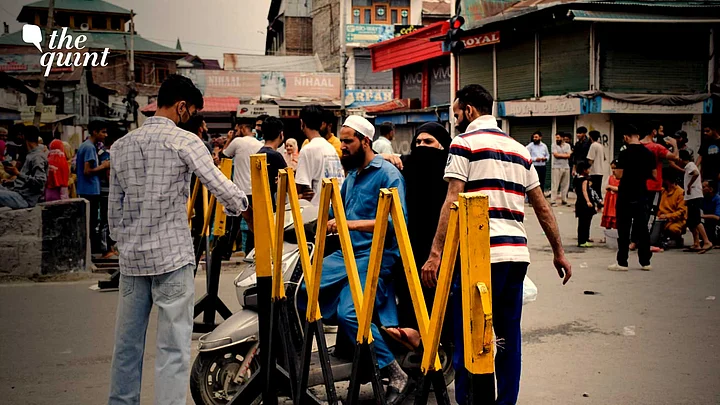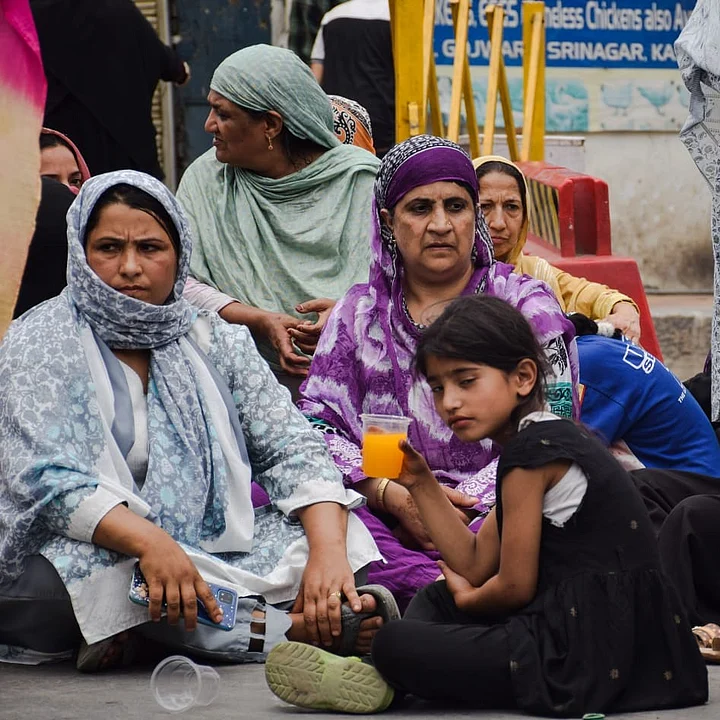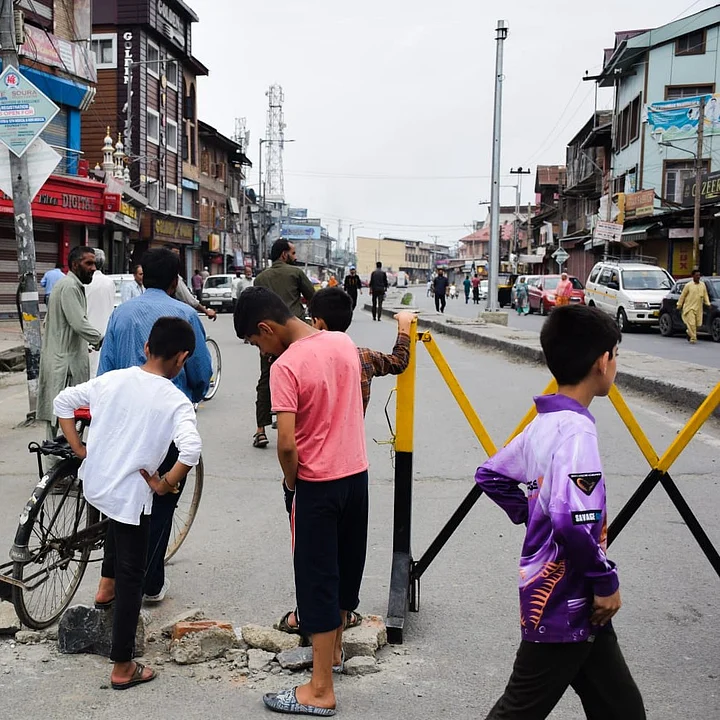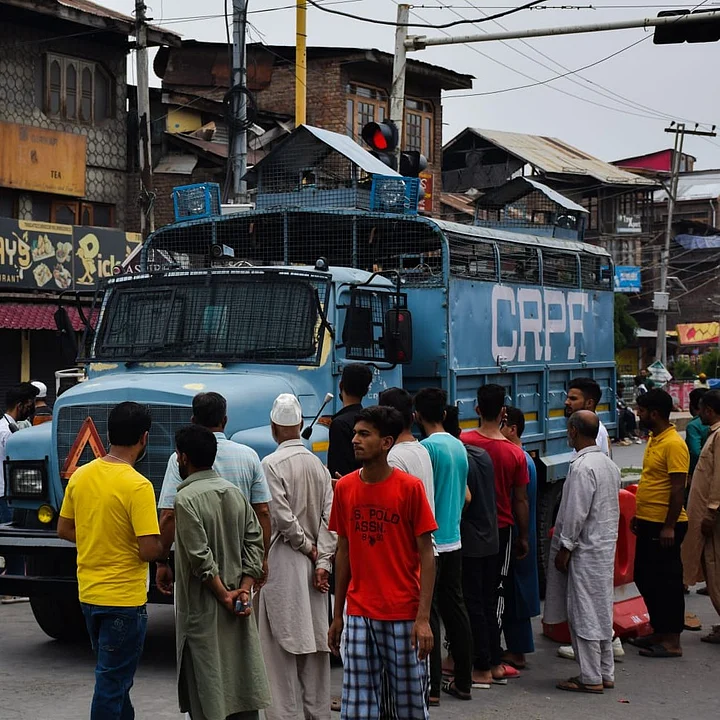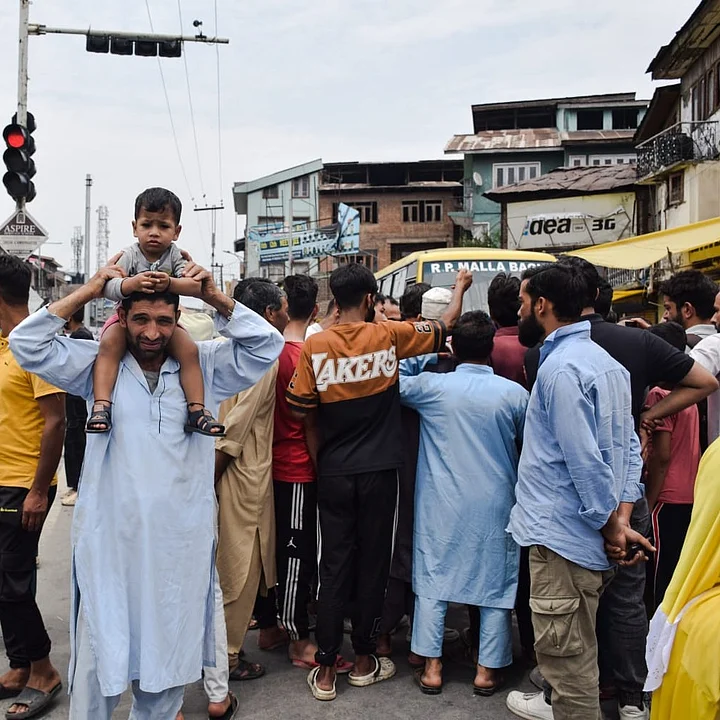In order to stop the misuse of electricity in Kashmir, the government is installing smart power meters in the region. But the ongoing metering is taking place at the cost of public resentment.
The installation of smart meters has sparked protests at a number of places in Kashmir including Srinagar, where people are not allowing the employees of Jammu and Kashmir’s Power Development Department (JKPDD) to install smart meters.
Electronic metering to reduce theft first started in Kashmir in 2005 but only 40 percent of customers are metered.
The Affordability Problem
When The Quint asked people about their objection to meters, they said that they are financially weak and can not afford to pay hefty power bills. “Most of the people in our area are living hand to mouth and they can not afford to pay more than Rs 1000 per month on power bills. We have decided to fight tooth and nail against the installation of smart meters,” said Zamrooda (name changed) a 45-year-old woman from Nowgam Srinagar.
Another consumer wishing anonymity said: “I used to pay a flat rate of Rs 750 per month but after the meter was installed I turned off all the heavy gadgets including cooking heaters, boilers, and room heaters but still I am receiving a bill of Rs 1400-1800 per month.”
Despite the protests from the consumers, the government has so far managed to install more than 10000 smart meters in Kashmir with a total of 11 lakh meters to be installed in the entire J&K Union Territory within the next two years.
- 01/04
People in Srinagar protesting the installation of smart power meters.
(Photo: Irfan Amin Malik)

- 02/04
(Photo: Irfan Amin Malik)

- 03/04
(Photo: Irfan Amin Malik)

- 04/04
(Photo: Irfan Amin Malik)

The Chief Engineer of the Kashmir Power Distribution Corporation Limited (KPDCL), Javed Yousuf Dar, told The Quint that the ruthless misuse of electricity has caused a revenue deficit. “The consumers don’t adhere to agreed loads and use power beyond their agreements. We had not been able to bridge the gap between power purchases and revenue collection which is why our key performance indicator is worst in the country.”
'Government is Killing Poor People', Say Protesters
Dar is hopeful that smart metering along with adequate infrastructure will fix the issue once and for all.
“As of now 30-32 percent of areas are metered in Kashmir and the rest is unmetered. People in almost 70 percent of the area are using power without any limit and pay on a flat rate basis. Due to power theft, we are facing over 50 percent aggregate technical and commercial (AT&C) losses. Therefore, KPDCL wants to create a working business model through which consumers will get electricity through billing generated by the meter. The meters will be installed in residential houses, shops, industries, and even all government offices."Javed Yousuf Dar, Chief Engineer of Kashmir Power Distribution Corporation Limited
Last month scores of people including men, women, and children blocked the Srinagar-Jammu national highway at Tengpora bypass in Srinagar and protested over the installation of smart meters.
A woman protester covering her face while slamming the government for smart metering said that the power is generated on J&K’s rivers and is then sold to outside states.
“Owing to the skyrocketing prices of essentials, our family budget is already stressed and we won’t be able to meet the additional expenses. How can a labourer who hardly earns 10,000 in a month pay hefty bills for smart meters? They (the government) are killing poor people,” asked an angry woman protester.
Revenue Collection and Power Curtailments
After politics, electricity is the second most talked about issue in Kashmir where the current power demand is 2400 megawatts (MW) and the supply is 1750 MW. Kashmir’s power shortages stem from a host of factors, including inadequate infrastructure, transmission losses, and misuse of electricity.
Every year the government comes up with a power schedule for both metered as well as non-metered areas. A majority of areas in the Valley are facing hours-long power cuts and the situation even worsens during peak winter when people use heavy electronic gadgets to keep themselves warm.
Also, during the ongoing summer season the power outages – 3 to 6 hours – continue despite the rise in temperatures.
A senior-level engineer in KPDCL revealed that despite spending Rs 8000 crore annually on power purchases the revenue realisation is only Rs 2600 crore on account of tariffs collected from consumers. For example, the engineer said that KPDCL which distributes power in the Valley incurred a 65 percent loss in the year 2021-22 compared to 69.01 percent in 2020-21 and a 74.06 percent loss in 2019-20.
For example, he said due to revenue shortfall resulting from power purchases and revenue collection the government is having trouble paying off the outstanding electricity debt to the central government’s power distribution corporations and other utilities.
Electricity Thefts
Senior economist Prof. Nisar Ali said that compared to the J&K power system in other states of the country is well-regulated. “Unlike in Kashmir, people in other parts of India use electricity judiciously. Power theft is evident in Kashmir but due to inadequate power infrastructure J&K also witnesses 40 percent transmission and distribution losses.”
Dar attributed power curtailments in Kashmir to electricity thefts. “Smart metering is a pan India process and J&K is no exception to it. It is only in Kashmir that people are ruthlessly using energy by using crude boilers and heaters during winter. On top of all the electricity rates in J&K is also low compared to states like Tamil Nadu, Maharashtra, Haryana, and Delhi.”
He assured that after the completion of 100 percent metering, J&K will see a round-the-clock power supply.
“With traditional meters, there was a manual process involved in collecting readings, which was not just labor-intensive but also consumed a significant amount of manpower and energy. The replacement of traditional meters with smart meters will result in a transparent process, and bills would be automatically generated so that consumers can easily track their daily usage and pay bills from their mobile phones.”
(Irfan Amin Malik is a journalist based in Kashmir. He tweets @irfanaminmalik. This is an opinion piece and the views expressed above are the author’s own. The Quint neither endorses nor is responsible for the same.)
